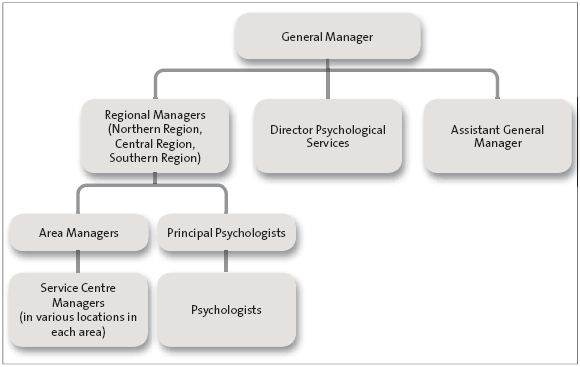Appendix 1: Parole and the Department of Corrections
The Department of Corrections (the Department) is responsible for managing offenders in the community on a range of sentences and orders imposed by the courts, including offenders who have been released on parole.
Parole is the conditional release of offenders who have served more than two years in prison. While on parole, offenders are supervised and expected to comply with conditions to guide their behaviour in the community.
The New Zealand Parole Board (the Board) is the independent statutory body that makes decisions about releasing offenders eligible for parole.
The Department's Community Probation and Psychological Services group (CPPS) is responsible for administering and managing community-based sentences and orders, including parole. On any given day, CPPS manages about 35,000 offenders serving community-based sentences and orders, including about 1800 offenders who have been released from prison early on parole, and provides information and reports to the courts and the Board.
Offenders are managed from CPPS service centres located in 12 areas in three regions (Northern, Central, and Southern) throughout the country. Figure 9 shows the organisational structure of CPPS.
Figure 9
Organisational structure of the Community Probation and Psychological Services group within the Department of Corrections

CPPS has about 968 full-time equivalent probation officers located in the 12 CPPS areas. There are service centres within each of the 12 CPPS areas. Probation officers within those service centres manage offenders serving a range of community-based sentences and orders, including parole. Service managers are responsible for managing service centre teams.
CPPS also has about 130 psychologists who provide specialist clinical assessment and treatment services for offenders in the community, and facilitate rehabilitation intervention programmes.
The Department's Prison Services group is responsible for managing the sentences of offenders in prison. Their work includes rehabilitation and preparation for re-integration into the community when an offender is released from prison. The Prison Service is also responsible for providing parole assessment reports to the Board.
In recent years, the Department has changed a number of the requirements set out in the CPPS operations manual for managing offenders on parole.
In April 2007, the Department amended the requirements for managing offenders on parole after deficiencies that were highlighted in the investigation into how the Department managed Graeme Burton while he was on parole. The changes included expanding and clarifying the guidance on managing higher-risk offenders (who are listed on the Offender Warning Register).
In October 2007, the Department made further changes to its requirements for managing offenders on parole. The changes incorporated legislative changes to the operation of parole arising from the Graeme Burton case. The changes included improving the provision of information to the Board, and expanding the powers of the Board and New Zealand Police.
page top
